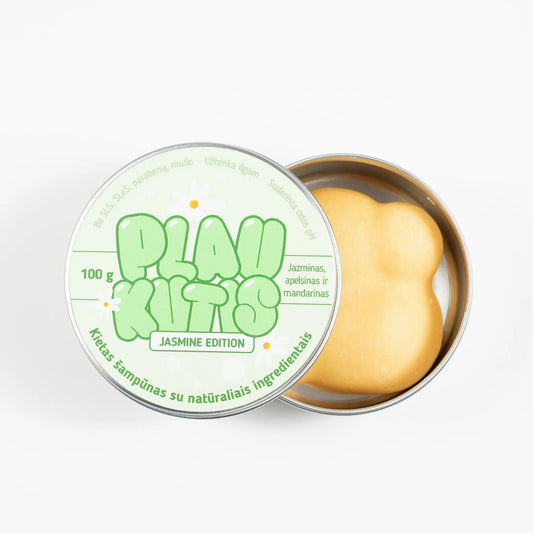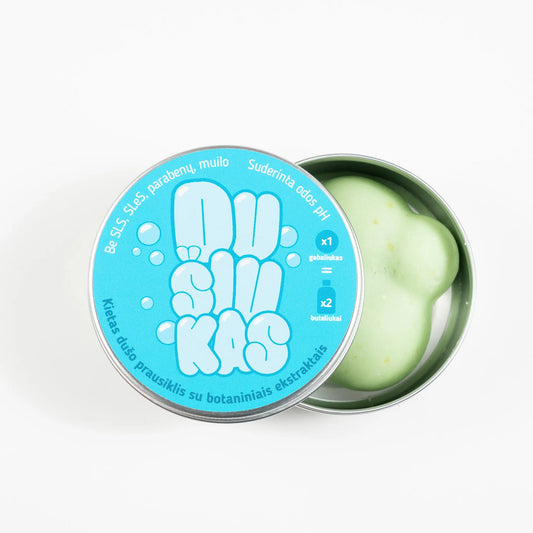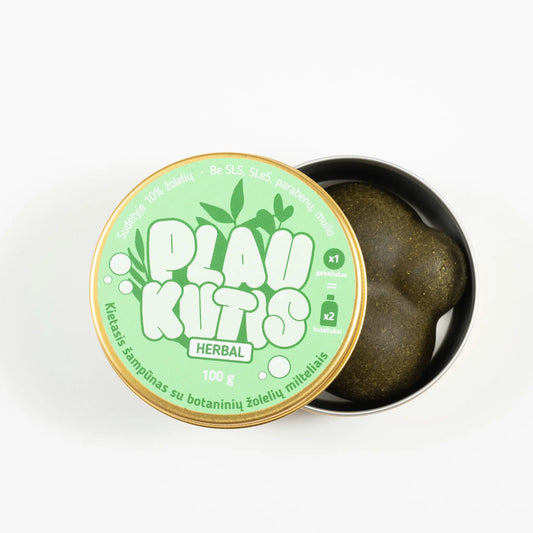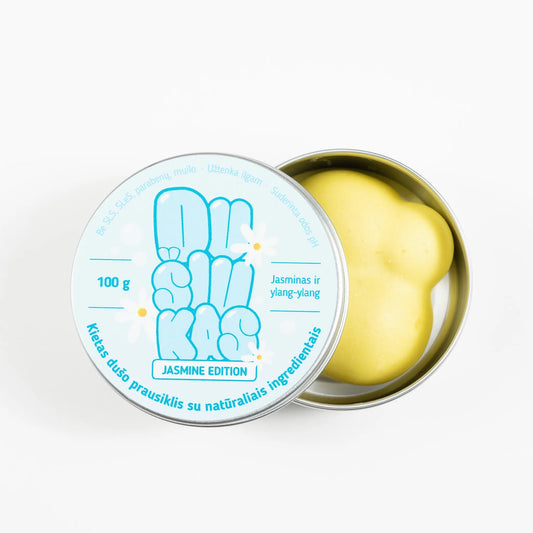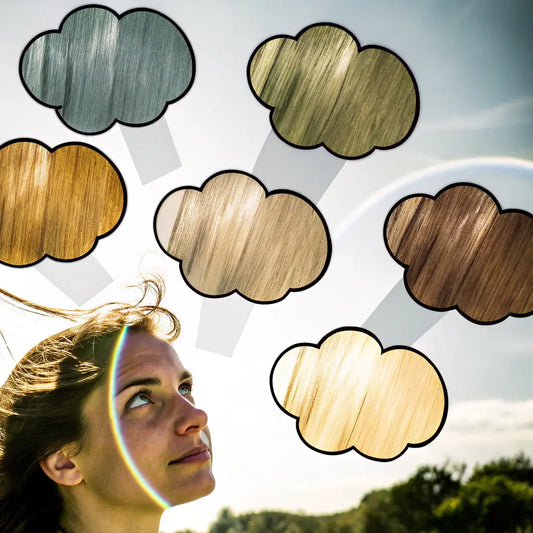However, iron supplements are not suitable for everyone . Taking them without a real need can cause health problems. According to the World Health Organization (WHO), iron deficiency is the most common nutritional problem in the world , affecting more than 30% of the world's population. In the United States alone, about 10 million people suffer from iron deficiency, and about 5 million from iron deficiency anemia.
Iron deficiency can lead to several health problems, including chronic fatigue, reduced immune function, and hair loss. Low iron levels directly affect hemoglobin production, which means less oxygen is delivered to the scalp and hair follicles, hindering healthy hair growth. So, let’s take a deeper look at when iron supplements are truly necessary for hair health, what their pros and cons are, and how to choose the right one if you decide to take them.

When are iron supplements necessary?
There are certain situations where iron supplements can be the key to healthy hair growth . Let's discuss some of the most common situations:
- Iron deficiency anemia: One of the main reasons why women may need iron supplements is iron deficiency anemia. This condition occurs when the body doesn’t have enough iron to produce healthy red blood cells. Anemia can cause symptoms like fatigue, pale skin, and, of course, hair loss. Studies have shown that people who are iron deficient often experience more hair loss than those who have adequate levels. A study published in the Journal of the American Academy of Dermatology found that women who were iron deficient had a 30% higher risk of experiencing excessive hair loss. Additionally, studies show that about 50% of women who experience hair loss have some level of iron deficiency , indicating a significant link between the two conditions.
- Heavy periods: Many women experience heavy periods, which can significantly deplete their iron stores. This may be a major reason why women of reproductive age experience thinning hair. According to the Centers for Disease Control and Prevention (CDC) , heavy menstrual bleeding affects about 1 in 5 women. A woman can lose up to 500 ml of blood per year due to heavy periods, significantly depleting her iron stores. If you often feel tired or notice that your hair is thinning, it may be due to low iron levels associated with heavy periods. Iron supplements can help replenish iron stores, especially during or after menstruation. A study in the British Journal of Obstetrics and Gynecology found that women who took iron supplements during their periods had a 40% reduction in symptoms of fatigue and hair thinning compared to those who did not take them.
- Vegetarian or vegan diet: Iron from plant sources is not as easily absorbed by the body as iron from animal products. If you follow a vegetarian or vegan diet, it may be difficult to get enough iron from food alone. Studies show that the body absorbs only about 2–20% of non-heme iron from plant sources , compared to 15–35% of heme iron from animal sources. Additionally, iron deficiency is reported to be more common among vegetarians , with up to 25% of vegetarians experiencing low iron levels . Iron supplements can be a good way to ensure you meet your daily needs and keep your hair healthy. Combining plant-based iron sources with vitamin C can help with absorption , but sometimes a supplement is needed to fill the gap.

- Pregnancy and breastfeeding: During pregnancy and breastfeeding , a woman’s body needs more iron to support both her own health and that of her baby. Iron deficiency is common during these times , and if left untreated, it can contribute to hair loss. The American Pregnancy Association states that pregnant women need almost twice as much iron to support increased blood volume and fetal growth. Iron deficiency during pregnancy can increase the risk of premature birth and low birth weight , as well as thinning hair in mothers. Iron supplements are often recommended during pregnancy to prevent anemia and ensure that both mother and baby are getting enough nutrients. According to the Journal of Nutrition , iron supplementation during pregnancy is associated with a 30% reduced risk of anemia and significant improvements in postpartum hair health.
If you recognize yourself in any of these situations, it's worth consulting with your healthcare professional to see if iron supplements are right for you.

Advantages and disadvantages of iron supplements
Iron supplements can be a lifesaver in some cases, but they also have potential drawbacks. Let's take a closer look at the pros and cons of taking iron supplements for hair health.
Advantages:
- Prevents hair loss: If your hair loss is related to low iron levels, taking supplements can prevent further hair thinning and promote regrowth of hair. Studies have found that restoring iron levels in women with iron deficiency significantly improved hair density and strength. A study published in the Journal of Clinical and Experimental Dermatology Research found that women who took iron supplements experienced a 40% improvement in hair thickness after six months . Another study from Dermatologic Therapy found that taking iron supplements reduced hair loss by 50% over 12 weeks .
- Helps maintain strong, healthy hair: Iron is vital for oxygenating hair follicles. When iron levels are balanced, hair follicles get the oxygen they need to stay healthy, which means stronger, more resilient hair. The National Institutes of Health (NIH) says that iron is important for cell growth, which directly affects the health of hair follicles. Hair follicles that lack oxygen become weaker , making hair brittle and more prone to breakage. Getting enough iron can help prevent this , making hair stronger and shinier.
- Increases energy levels and overall health: In addition to supporting hair health, iron supplements can increase overall energy levels, reduce fatigue, and improve concentration. If you’re constantly feeling tired, iron supplements can help you feel more energetic, which in turn can have a positive impact on your overall well-being, including your hair health. A study in the Journal of Physiology found that women who took iron supplements reported a 47% increase in energy levels in just two months. Increased energy can lead to more physical activity and better blood circulation , both of which are beneficial for hair growth.

Disadvantages:
- Iron overload (hemachromatosis): One of the biggest risks of taking iron supplements without a need is iron overload . Too much iron in the body can be harmful and cause a condition called hemochromatosis, which can damage organs including the liver and heart. Symptoms of iron overload include joint pain, fatigue, and abdominal pain. According to the American Journal of Medicine , iron overload affects about 1 in 200 people in the United States. Additionally, the National Heart, Lung, and Blood Institute warns that untreated hemochromatosis can reduce life expectancy by up to 15 years .
- Digestive issues: Iron supplements can cause digestive issues , such as constipation, nausea, and stomach pain. If you have a sensitive stomach, taking iron supplements can be uncomfortable. A study published in the Journal of Gastroenterology found that up to 30% of people taking iron supplements reported gastrointestinal side effects. To reduce these side effects, consider taking your supplements with food. Additionally, slow-release iron supplements can help reduce digestive discomfort because they release the iron gradually throughout the day rather than all at once.
- Interference with absorption of other nutrients: Iron can interfere with the absorption of other nutrients, such as zinc and calcium. If you take iron supplements, make sure you don’t take them at the same time as calcium-rich foods or supplements, as they can compete for absorption. The British Journal of Nutrition suggests separating iron and calcium supplements by at least two hours to maximize absorption. Additionally, studies have shown that iron supplements can reduce zinc absorption by up to 50% , which is important to consider if you’re also trying to maintain adequate zinc levels for hair and immune health.

How to choose the right iron supplement
If you and your healthcare professional have decided that iron supplements are the right choice for you , it's important to choose the right type and dosage to get the benefits without unnecessary side effects.
Here are some tips to help you choose the best option:
- Types of Iron Supplements: There are different types of iron supplements, such as ferrous sulfate , ferrous gluconate , and ferrous fumarate . Ferrous sulfate is the most common and usually the cheapest , but it can be harsh on the stomach. If you experience digestive issues, you can try ferrous gluconate, which is generally milder . Talk to your doctor to determine which type is best for you. A study in the Journal of Pharmacy and Pharmacology found that ferrous gluconate causes fewer gastrointestinal side effects than ferrous sulfate. Another option is carbonyl iron , which is often recommended for individuals who need a lower dose but want fewer side effects.
- Dosage is important: The recommended dose of iron depends on your current iron levels and overall health. It is important to stick to the dose prescribed by your healthcare professional . Excessive iron intake can cause serious health problems , including iron toxicity. Most women are advised to consume between 18-27 mg of iron per day , but this can vary depending on individual needs. A study in the Journal of Nutrition highlighted that exceeding the recommended dose of iron can lead to oxidative stress , which can damage the body's cells. Oxidative stress can also contribute to premature aging of the skin and hair , highlighting the importance of following the correct dosage.
- Pair with vitamin C: Vitamin C increases iron absorption , especially non-heme iron (the kind found in plant-based foods). If you take an iron supplement, try combining it with a glass of orange juice or taking a vitamin C supplement at the same time . A study in the American Journal of Clinical Nutrition found that vitamin C can increase iron absorption by up to 67% . This can make a big difference in how efficiently your body uses iron. For example, adding just 75 mg of vitamin C (about the amount found in an orange) to your iron supplement can significantly increase iron absorption.
- Form matters: Iron supplements come in a variety of forms , including tablets, capsules, and liquids. If you have trouble swallowing pills, a liquid iron supplement may be easier to take . Some people also find that liquid supplements cause fewer digestive problems. The Journal of Dietary Supplements reported that liquid iron supplements are often better tolerated by individuals with digestive sensitivities . Additionally, chewable iron supplements are an option for those who don’t like swallowing pills , making it easier to stick to a supplement routine.
- Check for additional nutrients: Some iron supplements also include other nutrients , such as vitamin B12 or folate , which are also important for hair health. These may be a good option if you're looking for a more complete supplement to support hair growth . According to a study in the journal Nutrients , women who took a combination of iron, folate, and vitamin B12 saw improvements in both hair strength and overall health . Another study in the Journal of Women's Health found that combining iron with vitamin D also helped improve hair growth outcomes in women who were deficient in both nutrients.

Conclusion: Do you need iron supplements for hair health?
Iron supplements can play an important role in hair health , especially if you have low iron levels that are contributing to hair loss. However, they are not a one-size-fits-all solution . It is important to understand your body’s needs before deciding to take any supplements . If you suspect that low iron levels are affecting your hair, consult a healthcare professional for iron testing and personalized advice.
Keep in mind that while iron supplements can help restore hair health, they should be used with caution to avoid potential side effects. Diet also plays a role in maintaining optimal iron levels . Try to include both animal and plant sources of iron in your meals, and combine them with vitamin C to improve absorption.
Hello, beautiful hair starts from the inside out , and it's important to ensure your body gets all the nutrients it needs. Be patient, take care of your health, and your hair will thank you .
